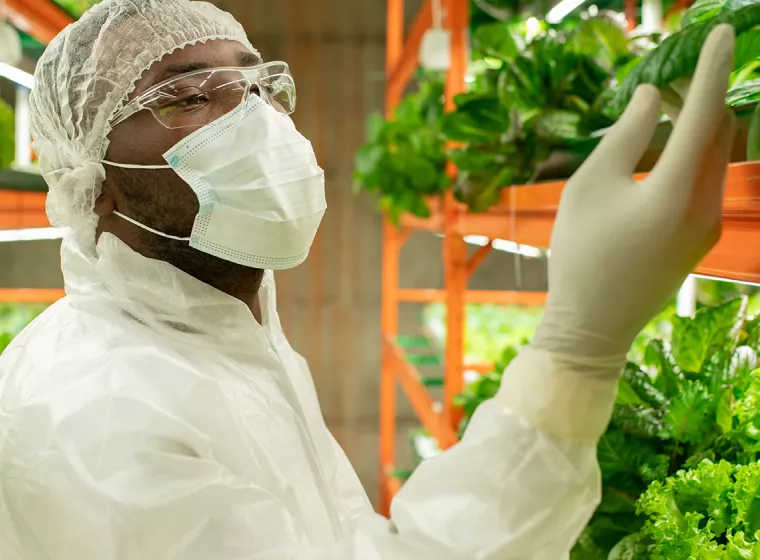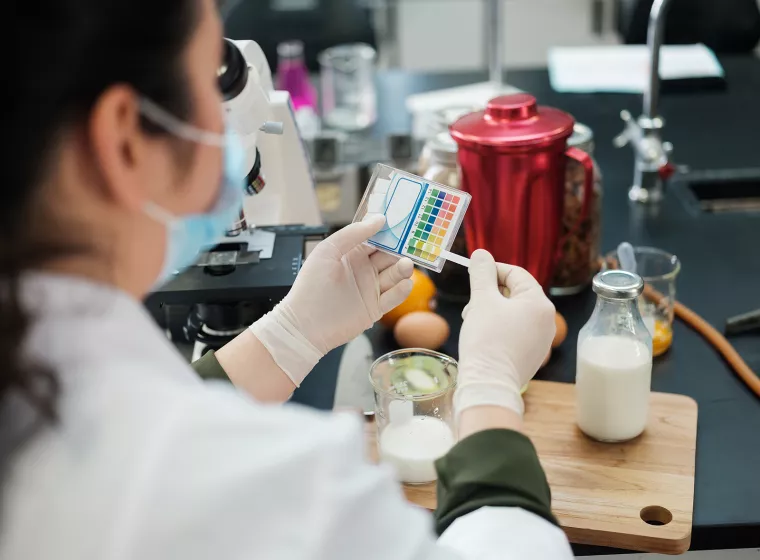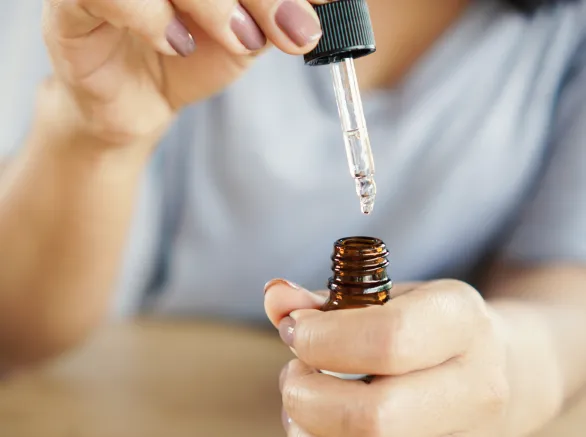September 22, 2023
From clinical trials to well-evidenced dossiers, new health claim applicants face multiple regulatory challenges — but approval can offer significant market advantages
In the European Union, to be able to use a health claim on food packaging labels or in promotional material — for example, "black tea improves attention," or, "Vitamin D supports normal bone growth and development" — food companies must clear a demanding threshold for scientific substantiation set out by the European Food Safety Authority (EFSA). A very similar but separate system is now in place in Great Britain following the U.K.'s exit from the EU.
Authorized health claims, which appear in the EU health claims register, can be used on food products in the EU as long as they meet the stipulated conditions of use. However, to achieve favorable EFSA opinions for new health claims that are not already in the EU register, applicants will need to spend months to years compiling well-evidenced scientific dossiers — including randomized human intervention trials and meta-analyses of product ingredients — to produce data that demonstrate a cause-and-effect relationship between consuming a well-defined ingredient and achieving a specific health benefit.
Applicants can seek five-year market protection for health claims based on proprietary data
A typical submission dossier for a new health claim weighs in at several hundred pages. An applicant seeking a coveted health claim can also request that EFSA not publish any proprietary knowledge disclosed in the dossier as part of the agency's normal processes.
What do food and beverage companies stand to gain from all this time and effort?
Across all 27 EU Member States, applicants who successfully obtain an authorized health claim can be granted five years of exclusive marketing rights for their specific claim, along with protection of the company's underlying proprietary data.
Yet submitting a successful EU health claim application remains a well-known challenge: EFSA rejects about 90% of health claim submissions, having authorized just 267 health claims out of over 2,300 submissions since the Nutrition and Health Claims Regulation framework was implemented in 2007.
Human intervention studies are mission critical
After the initial submission to the E-Submission Food Chain Platform and a check of admissibility, a health claim application dossier is transmitted to EFSA for evaluation by the Panel on Nutrition, Novel Foods and Food Allergens (NDA Panel), a committee of scientists that will spend at least nine months in rounds of scientific critique (which often also involves additional input from the applicant) as the panel develops its final opinion. Importantly, the agency's assessment of the scientific substantiation of the proposed claim serves as a basis for the European Commission and Member States to adopt the approval for use of claims on food packaging and advertising.
A wide variety of factors can play a role in EFSA's assessment process, but human intervention studies are one of the most critical components of the substantiation of any new health claim.
In fact, EFSA's General Scientific Guidance for Health Claim Applications (2016) places human intervention studies, which are essentially clinical trials, at "the top of the hierarchy" for evaluating the substantiation of health claims. EFSA also offers targeted guidance documents for applicants on substantiating health claims related to various human body systems (e.g., nervous, gastrointestinal, blood glucose, and muscle function).
Applicants frequently encounter difficulty with health claim dossiers in direct proportion to how much their product depends on emerging scientific research, when there may be fewer existing human efficacy studies against which to compare or model their product investigations. The ability to conduct literature reviews or engage support in reviewing published health claim decisions can help applicants identify strategies and thresholds of evidence required to achieve an approved health claim.
Applicants can also consider:
- When it comes to scientific evidence supporting the use of a health claim, long-term human intervention studies that include people at risk of developing a certain health condition provide strong scientific substantiation for some claims relating to certain health outcomes, but studies cannot be conducted in diseased populations. For instance, it is strongly preferred that potential candidates for these clinical studies be screened for typical biomarkers of specific emerging metabolic or cardiovascular disease (such as subclinically raised cholesterol, blood pressure, or blood sugars) while not reaching the criteria to be diagnosed with diabetes or heart disease. However, it is important to note that health claims cannot relate to treatment, diagnosis, or cure of any disease and that any such claims will be rejected by EFSA.
- Successful application dossiers stand out by emphasizing quality research over the quantity of studies submitted. For instance, dossiers frequently contain over a dozen human intervention studies. Yet methodological weaknesses such as insufficient sample size, lack of randomization, or power calculations in these studies can result in rejection for applicants. Thus, an application that includes a dozen clinical trials may only be evaluated on the handful of studies deemed sufficiently robust to meet evaluator standards.
Applicants with a health claim relevant to the final consumer-ready application and with evidence of efficacy from human trials tend to be more successful in gaining approval for an EU health claim. Even otherwise well-designed studies can be rejected because the specific substance the food contained was evaluated rather than the food product itself. For example, EFSA concluded a 2010 health claim application for bananas and protection of cells and tissues from oxidative damage was not acceptable since the studies provided as substantiating evidence addressed potential health effects of dietary antioxidants in general rather than for the banana.
Additional recommendations
Compiling a submission backed by relevant, high-quality scientific evidence is clearly critical; however, assuming the applicant has done its due diligence in completing or identifying high-quality, randomized controlled clinical studies, there are other factors that can influence the overall outcome of a dossier. Companies may also benefit from the following strategic considerations:
From rebuffed to ready: identifying new opportunities for health claims
While most health claim applications reviewed by EFSA are not considered to be substantiated, potential applicants can learn from the large amount of feedback provided by EFSA during the evaluation process. Some claims that are initially rejected may be subsequently approved on provision of further substantiating evidence following the feedback process.
The path to substantiation of a health claim can best be navigated successfully by applicants willing to revamp their dossiers and learn from scientific critique. That process may span several years, but an approved health claim can give a competitive edge, with consumers increasingly making food choices based on nutrition and health considerations. In addition, for companies submitting a claim based on proprietary data, EU approval can result in an exclusive five-year marketing right to use of that health claim across the 27 EU Member States along with protection of the proprietary research data.
Beyond attaining a privileged perch on grocery shelves, an EU-approved health claim, along with the process of compiling the data required to support an application for approval of a health claim, can substantially help develop the R&D function of a food manufacturer, producing valuable insights that spur innovation and new product development.
What Can We Help You Solve?
Exponent's regulatory experts have extensive experience developing thorough data packages for EU health claim submissions. We can support clinical trial and research design; provide training on food legislation; advise on EU regulatory controls; and support Member State notification and label and formulation checks for your target markets.

Dietary Exposure & Human Health Risk Assessments
Efficiently estimate intake of foods, nutrients, and food additives, as well as dietary exposure to contaminants.
![Consumer Products [PSMC]](/sites/default/files/styles/cards_home_card/public/media/images/GettyImages-171366863.jpg.webp?itok=0YQ9vN1U)
Food
Food safety, nutrition, and dietary exposure assessments, and technical and regulatory support.

Food Safety & Nutrition Regulatory Support
From risk assessment to product recall, Exponent scientists provide support on critical safety and regulatory challenges.

Claims on Foods and Dietary Supplements
Regulatory strategy development, evidence review, documentation and petition preparation, and regulatory submission monitoring.

Food and Nutrition Science Support
Food science and nutrition consulting support for food, ingredient, and beverage manufacturing companies, trade associations, and government agencies.



